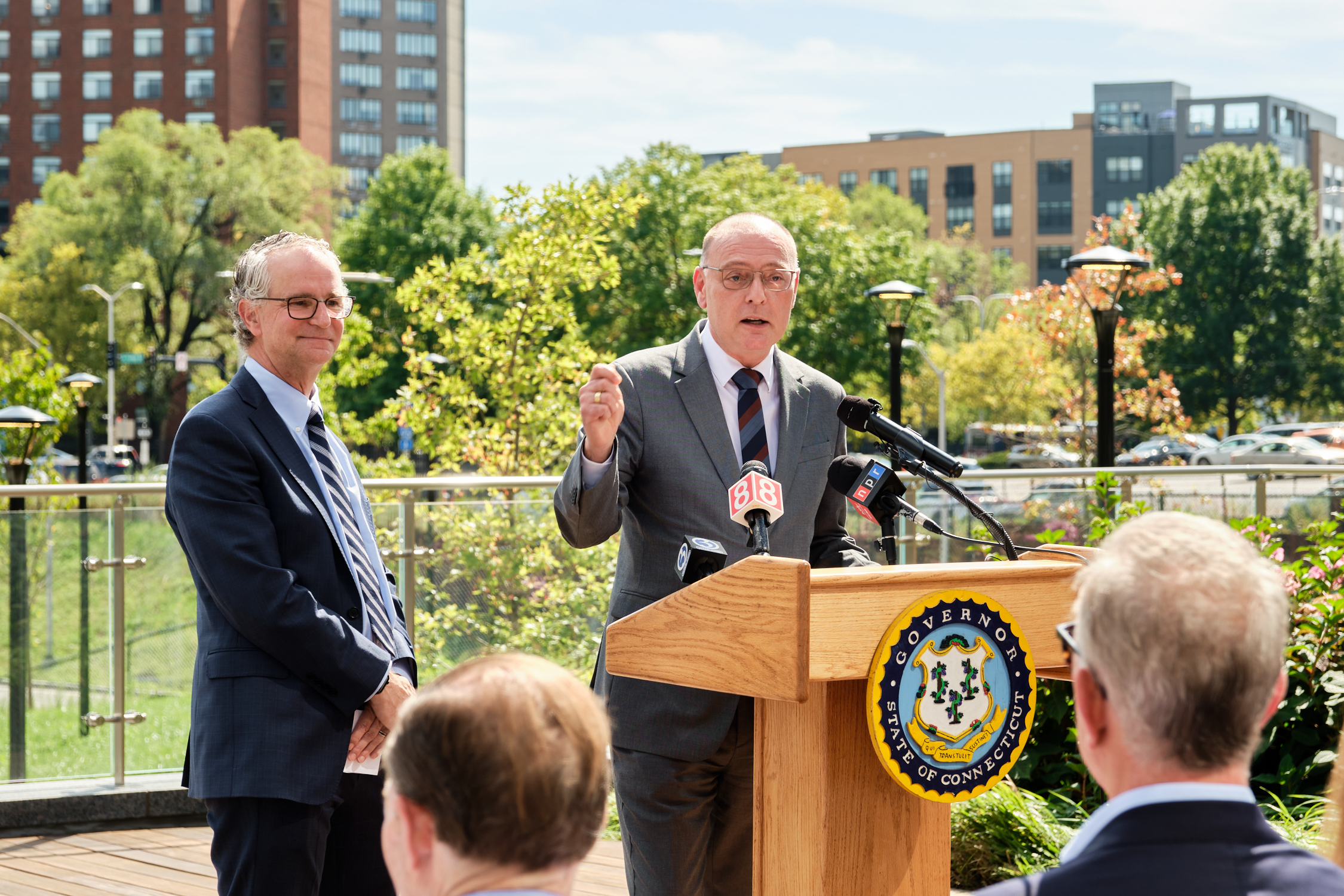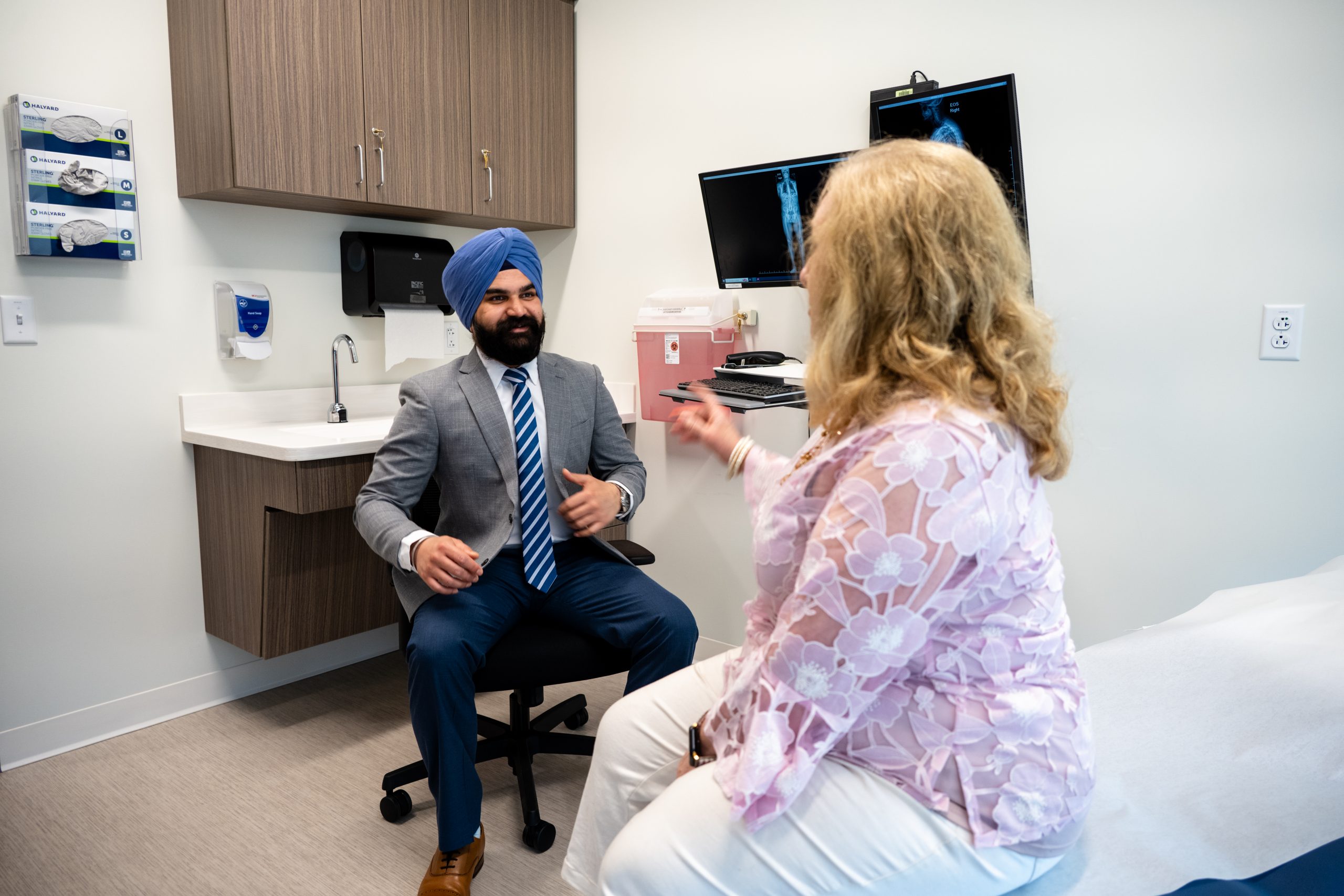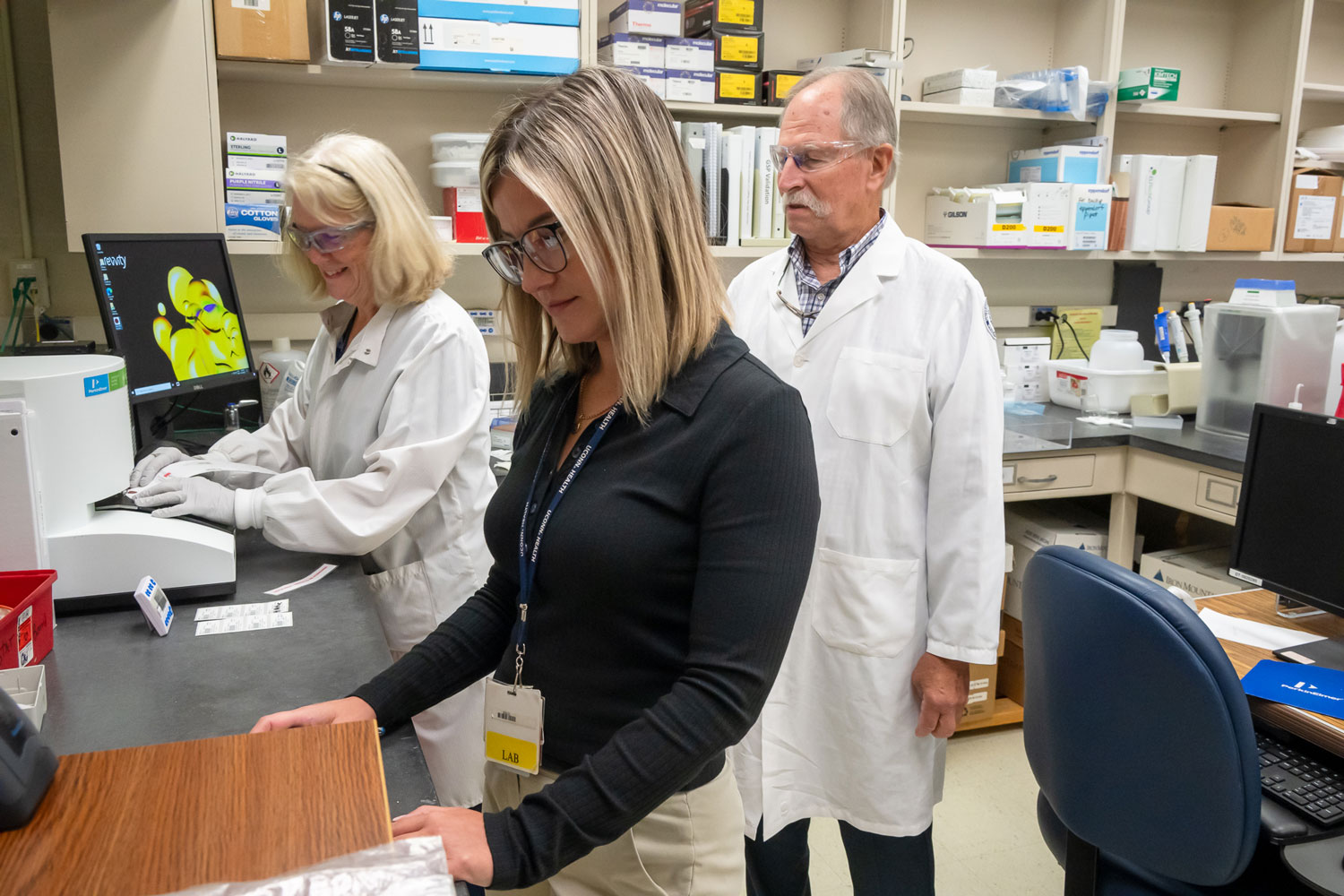State Investment in QuantumCT Supports Innovation Infrastructure
The state is tapping UConn and Yale’s quantum expertise to propel economic development in New Haven through significant infrastructure investments in emerging technologies.
On Friday, September 26, Gov. Ned Lamont announced that his administration is investing $50.5 million in infrastructure and facilities in downtown New Haven as part of the newly launched Connecticut Innovation Clusters Program. Through this investment, the state hopes to spur economic growth by nurturing innovation in emerging technologies, including artificial intelligence and quantum technology, with transformative potential for Connecticut’s core industries.
“Every day in downtown New Haven, workers are developing the cutting-edge research, technologies, and products that are changing the world and propelling Connecticut forward as a leader in the fields of life sciences and quantum technologies,” Governor Lamont said. “We want to build on this foundation, encourage new growth, and further cement New Haven’s reputation as a groundbreaker in these sectors. These targeted investments in the downtown neighborhood’s public infrastructure and facilities will enable us to further partner with these businesses and accelerate job growth and more opportunities here in Connecticut.”

The investment includes $10 million for QuantumCT, an initiative launched in 2022 by UConn and Yale and supported by state, industry, education, and municipal organizations statewide, to elevate Connecticut as the nation’s leading accelerator of quantum technology and applications. The Governor’s Office and Department of Economic and Community Development (DECD) see UConn and Yale as critical to the success of the New Haven Innovation Cluster. For UConn, that means applying expertise in priority research areas such as advanced manufacturing, materials and sensors, and translational research.
“Connecticut has one of the nation’s strongest concentrations of early adopters of quantum technologies, positioning the state as a leader in this emerging field,” said Pamir Alpay, vice president for research, innovation, and entrepreneurship for UConn. “By working closely with industry partners, we are advancing near-term applications that will lay the foundation for a quantum-enabled future.”
Michael Crair, Yale’s vice provost for research, also touted the investment’s potential to help grow Connecticut’s quantum sector.
“This investment will allow Yale, UConn, the City of New Haven, and our partners to accelerate the translation of quantum and bioscience research into applications that benefit Connecticut’s communities and economy,” said Crair. “By building shared infrastructure and training the next generation of innovators, we can ensure that quantum technologies take root and grow here in Connecticut. It’s an exciting step forward for our city and state.”
The full $50.5 million is earmarked for the following projects and organizations:
• $10 million for QuantumCT to provide financial support for its nonprofit entity, including quantum computing infrastructure and testbed deployment
• $17.5 million in public infrastructure improvements to support development, including stormwater management and climate-resistant mobility
• $14.5 million to facilitate development of a 200,000-square-foot facility for the city of New Haven and 277,000-square-foot planned life sciences building on the site of the former New Haven Coliseum
• $4.2 million for a multi-pedestrian corridor connecting Union Station to downtown
• $3 million to BioCT to activate programming within the cluster
• $1.3 million to create a 4,500-square-foot New Haven Innovation Center
“The strategic value of this investment is enormous, as we are essentially doubling down on areas where Connecticut already has competitive advantages,” said Daniel O’Keefe, DECD commissioner and the state’s chief innovation officer. “Supercharging our life sciences and innovation capacity will have far-reaching positive impacts on the state’s ability to attract new talent, investment, and companies, as well as strengthen our overall competitiveness.”
The QuantumCT initiative has established the same-named nonprofit organization that coordinates projects and quantum applications throughout the state.
“Being selected for the Innovation Clusters Program affirms the central role QuantumCT will play in shaping Connecticut’s future economy,” QuantumCT CEO Albert M. Green, said. “By bringing together universities, companies, and investors, we are creating the infrastructure, talent pipeline, and partnerships needed to make Connecticut the place where next-generation industries take root and grow. This award sends a clear signal that Connecticut is committed to investing in transformative technologies that will drive competitiveness, attract global companies, and create opportunity for our residents for decades to come.”
The state’s investment marked one of two major milestones for QuantumCT announced this month. On September 18, the UConn-led QuantumCT proposal was named a finalist in the National Science Foundation’s Regional Innovations Engines Program competition. If successful, the proposal could receive up to $160 million in federal funds to further develop quantum-related technologies and workforce in Connecticut. UConn and Yale will host an NSF site visit in December, and the winning proposals are expected to be announced in early 2026.
QuantumCT draws on UConn’s Quantum Alliance, a grass-roots, collaborative platform that brings together researchers from across all campuses in the state, including UConn Health. The Alliance promotes networking and engagement of the more than 75 UConn faculty who are active in quantum sciences and engineering. Goals of the Alliance include advancing quantum innovation and discovery and strengthening educational opportunities for the next generation.
Latest UConn Today
- Dr. Cato T. Laurencin Elected International Fellow of Chinese Society for BiomaterialsUConn's Sir Cato T. Laurencin's prestigious recognition honors the most distinguished scientists in the field of biomaterials around the world.
- Rebuilding Spines, Restoring Lives: How UConn Health’s Dr. Singh Helps Patients Stand Tall AgainRebuilding a spine is more than surgery, it’s restoring a life. At the Comprehensive Spine Center at UConn Health’s Brain and Spine Institute, Dr. Hardeep Singh specializes in complex spinal reconstructions that give patients like Tina and Julie the chance to stand tall again, walk without pain, and return to the lives they thought they had lost.
- 50 Years in the LabSidney Hopfer, at UConn Health since 1975, reflects on the evolution of laboratory medicine
- UConn Releases Annual Safety ReportsThe two reports are the Clery Annual Security and Fire Safety Report, and a report from the Office of Institutional Equity
- UConn Indoor Air Quality Initiative at the United NationsInitiative joins Global Pledge for Healthy Indoor Air
- New England Sickle Cell Institute Continues Raising AwarenessSeptember is Sickle Cell Awareness Month, and the Institute proudly participated in the Sickle Cell Disease Association of America’s New Haven community walk.













